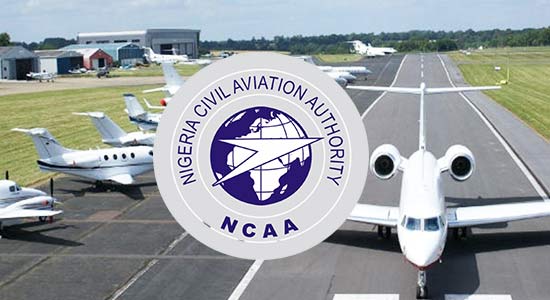🌿 Ruzu Non-Alcoholic Herbal Bitters
Ruzu Non-Alcoholic Herbal Bitters is a natural health supplement specially formulated to:
- ✅ Promote general wellness
- ✅ Detoxify the body
- ✅ Support the treatment of various ailments
Made from a powerful blend of 100% organic and medicinal herbs, Ruzu is completely alcohol-free, making it ideal for:
- 👪 All age groups
- 🌱 Health-conscious individuals
- 🌿 Anyone seeking non-alcoholic herbal remedies
Whether you're looking to boost your vitality, cleanse your system, or support healing the natural way, Ruzu Bitters offers a trusted herbal solution.
As training at the International Aviation College (IAC), Ilorin, Kwara State, is hampered by a lack of trainer aircraft, a pilot shortage could soon affect the Nigerian aviation industry.
Over the weekend, our correspondent received information from a source close to the college that the institution no longer has trainer aircraft to instruct its student pilots because of recent serious accidents involving its last surviving trainer aircraft.
However, in a phone conversation with our correspondent, the college refuted the assertion, stating that it currently has two operational aircraft for student pilot training.
The college was founded in 2011 by then-state governor Alhaji Abdulfatah Ahmed. At its height, it had six trainer aircraft, but according to people close to the college, it now does not have any operational aircraft for the flying school.
Among them were helicopters, Diamond DA 4Os, and Diamond DA 42s, which were utilized for the college’s multi-engine rating classes.
In 2019, a trainer aircraft registered 5N-BHN also crashed and was never reported to have been put back into service.
At least 250 pilots, holding both Private Pilot Licence (PPL) and Commercial Pilot Licence (CPL), have been trained by the college for the nation’s aviation sector.
A college-operated trainer plane also crashed and injured a student pilot on Friday, May 23, 2025.
The incident happened as the aircraft approached Ilorin International Airport’s Runway 05.
Our source claims that the only airplane the college had for training was the one that was heavily damaged in the tragic incident.
According to our source, the check flight had stalled since the serious mishap occurred during “a mock check flight” conducted to prepare the student pilot for a CPL check ride.
Also, the source informed our correspondent that the college had applied for permission to buy an engine for one of the fleet’s aircraft so that it could be recommissioned for flight, but as of the time this report was filed, the college had not received permission from the state government to do so.
At the moment, the college is floating, according to the source. It lacks a single aircraft to perform the necessary test flights for its student pilots. As part of the training handbook, this is what is typically done, but since that May 23 incident, it has been put on hold.
Due of the uncertainty surrounding the availability of trainer aircraft, many students who are scheduled to take off are waiting. However, we’re waiting for the state government to step in and turn things around.
Another source who also did not want his name to appear in print acknowledged that the college does not currently have any operational aircraft, but he said that since the majority of the students are enrolled in ground school, the current situation has not halted their training.
“The majority of the pupils are in ground school, although we are not currently flying. They’ll start flying again as soon as they’re done. “I am confident that airplanes will be available by the time we begin flying,” the person stated.
The assertion that the college lacked trainer aircraft was also refuted by Mr. Ajape Abdullahi, the IAC’s Head of Training.
In a phone conversation with our correspondent, Adbullahi stated that despite the serious event involving its trainer jet, the college has been accepting and graduating students for the past two months.
He claims that following the successful conclusion of their CPL training, IAC graduated three pilot candidates in June.
Prior to graduating in June, Abdullahi informed our correspondent that the students completed their practical training aboard the Diamond DA 42 trainer aircraft of the Nigerian College of Aviation Technology (NCAT), located in Zaria.
He added that the college now has roughly 35 pilot students, including PPL and CPL enrolled in ground school.
“Diamond DA 42, which is multi-engine equipment, is the only aircraft that we do not currently have,” he stated. Remember that we have a Memorandum of Understanding (MoU) with NCAT that allows us to trade equipment.
Right now, we have two Diamond DA 40 aircraft in our fleet that are useful for real-world scenarios, which often occur during our students’ final year. We have not yet finished ground school for our pilot pupils. They will then continue on to the fly line.
Additionally, we have a functioning simulator that we use to give our students hands-on instruction. The Nigeria Civil Aviation Authority has granted the simulator its accreditation (NCAA).
The maximum training duration for the PPL is six months, which includes three months in ground school and an additional three months in the fly line. However, this is mostly dependent on student performance and weather conditions. Typically, the CPL lasts 18 months, including 16 weeks of ground school and weeks of fly line training.
The vice president of the Aviation Safety Round Table Initiative (ASRTI), Dr. Alex Nwuba, commented on the problem, stating that the college’s inability to have operational aircraft would prevent students from receiving ongoing training.
Nwuba said that in order to save the college from collapsing, the Kwara State government should adequately fund it. He also suggested that the administration purchase redundant aircraft at a reduced cost in order to continue training its student pilots.
Read Also: ‘There’s Nothing To Destroy Again In PDP, It’s Finished, Not a Party Anymore – Fayose
“It means that their education would be delayed, which is typical of our educational system where you go to school for a certain number of years but end up staying longer due to no fault of the students,” he said.
“If the college really does not have a trainer aircraft anymore, the state government may step in and help. We ought to maintain the college. Getting something done just comes down to priority.
Additionally, IAC management was advised to transfer their flying students to NCAT for fly line by aviation industry analyst Engr. Chukwudi Amokwu.
The lack of trainer aircraft at the college, according to Amokwu, signifies that “the flying school of the college is gone and it is the major school that sustains them.”
In order to be eligible for the PPL and CPL, you are required to have a specific number of hours. I believe the PPL is around six hours of flight time, but the CPL must have at least 200 hours.
“They can also use a simulator to do the instruction. They are unable to obtain a license without the airplane. “That is the foundation of any flying school,” he continued.
He suggested management to repair some of the fleet’s unusable aircraft for student training, explaining that bureaucracy may make it difficult for the institution to purchase a new trainer aircraft.
He continued by saying, “They can still write the NCAA to allow Zaria instructors to come and finish the training for them.”














